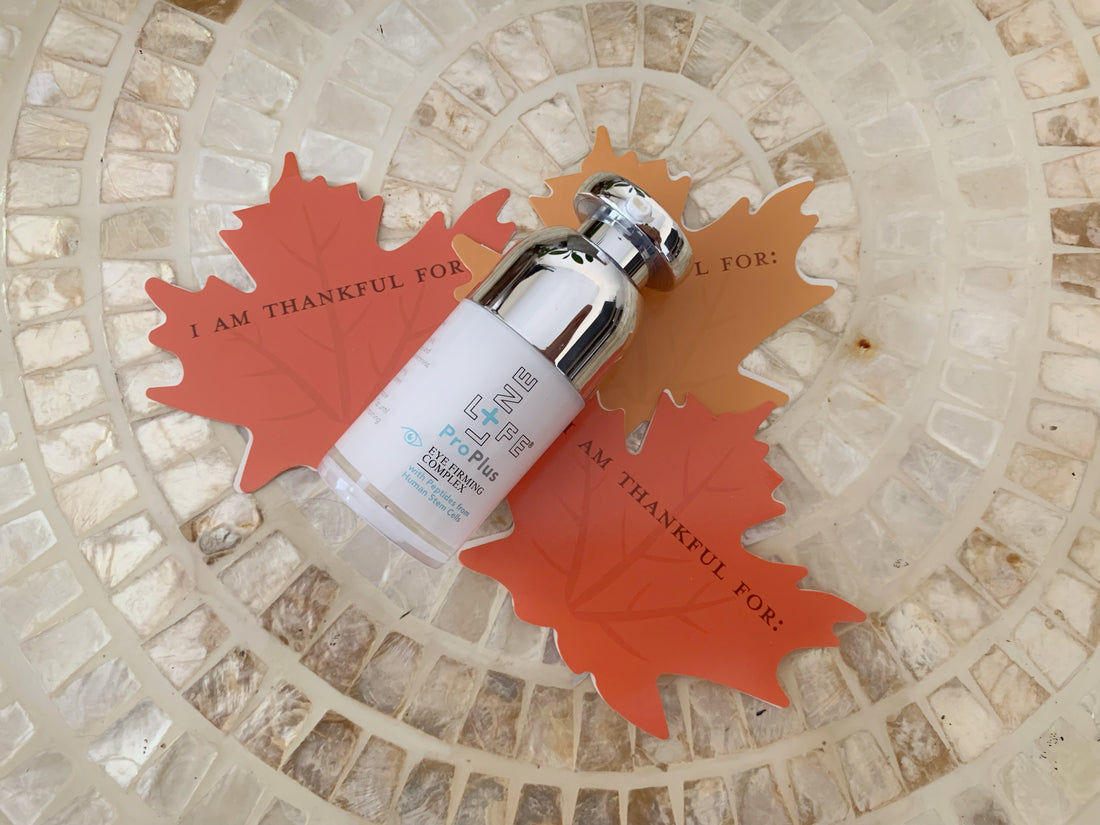5 tips to fit gratitude in your life
As we celebrate Thanksgiving, its a reminder to practice gratitude. Feeling thankful can improve your health in both direct and indirect ways. Through research it’s been discovered that being thankful and happy boosts your immune system, lowers blood pressure, makes you feel more optimistic, decreases depression, improves your love life, and decreases stress (stress can be an underlying cause of acne and wrinkles).
Turning to gratitude can, in part, help us see the glass as half full.
Here are four ways gratitude promotes self-care:
Find gratitude in your challenges
Gratitude is not only about being thankful for positive experiences. In fact, sometimes thinking about negative or difficult situations can help to really nail down what you have to be thankful for. Look back into some of your own past experiences and try to figure out how they have helped shape you into the person you are today.
Appreciate the little things
Pick one interaction a day. When your instinct to say “thanks” arises, stop for a moment and take note. Can you name what you feel grateful for, even beyond the gesture that’s been extended? Then say thank you.
Give back to the world and the world will give back to you
Giving back can bolster those ‘happy’ feelings. Volunteering to help someone less fortunate changes your perspective by shifting your focus onto other people and away from your own problems. This keeps you in a space of gratitude.
Be grateful for the skin you’re in:
Practicing gratitude on a regular basis has been associated with enhanced optimism, better sleep, fewer physical ailments, and lower levels of anxiety and depression. Gratitude practice can also reshape the brain. Self-care may be a quiet spa at home, or writing in your gratitude journal.

